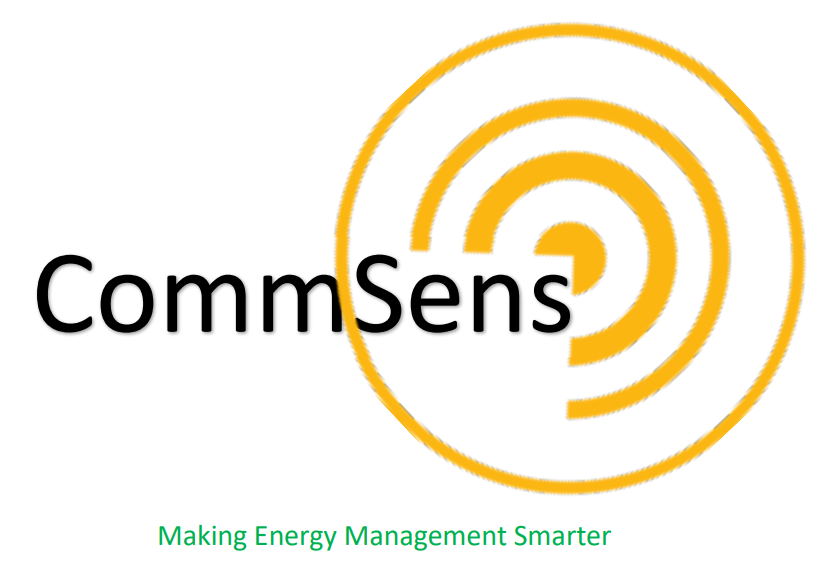- Details
- Category: Uncategorised
- Hits: 2917
About International Floating Solar Society (IFS2)
The International Floating Solar Society (IFS2) is a global web community, which shall serve as a platform to gather and exchange latest knowledge and experiences on floating solar, including reports, statistics and related events across the world.
Our mission is to promote the exchange of best practices and knowledge about floating solar. The aim is to facilitate the centralisation of data and information into one single platform to fast-track the adoption of qualitative and sustainable floating solar projects across climates and regions.

What we do
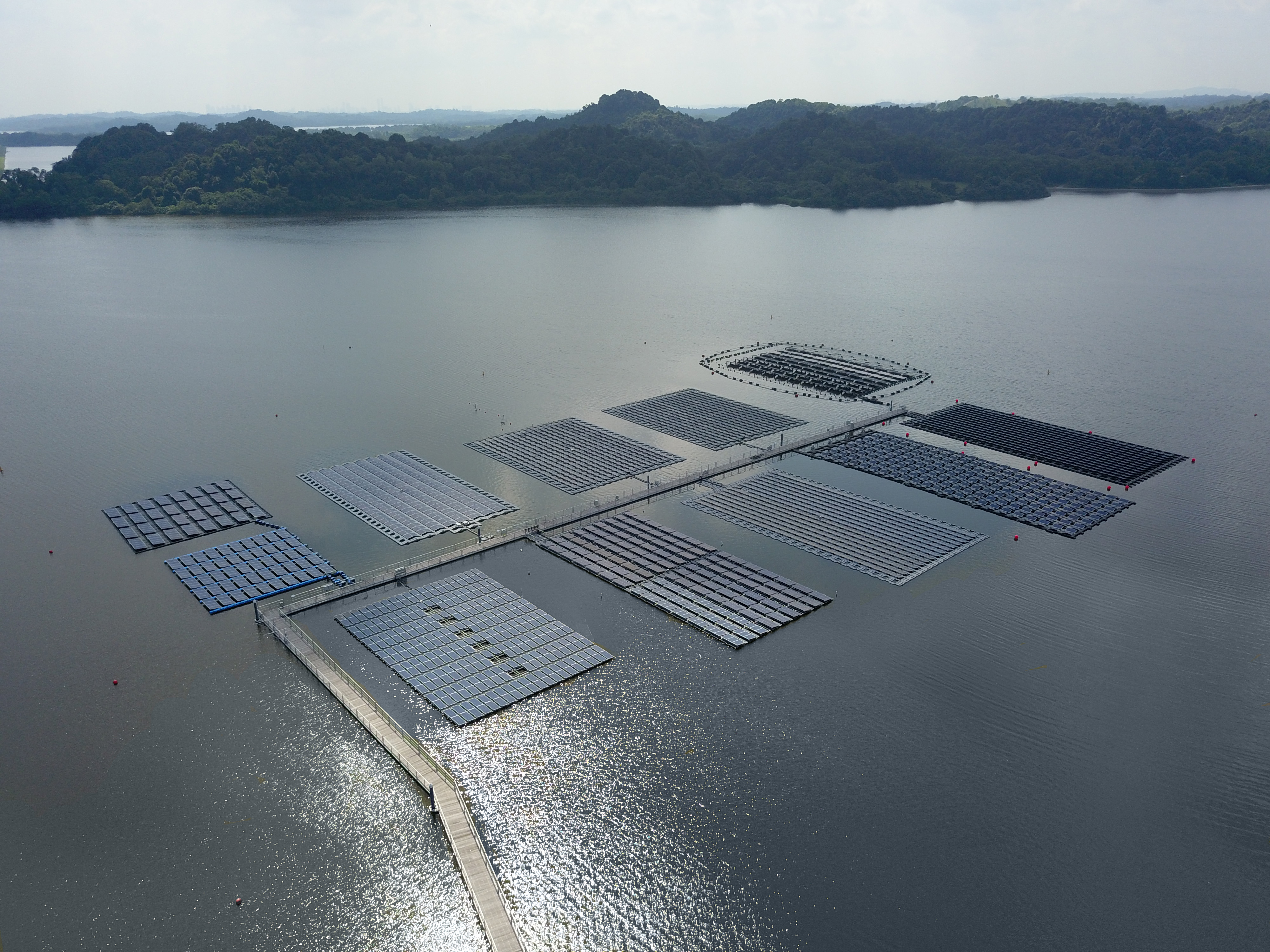
Source: © SERIS
Solar Energy Research Institute of Singapore (SERIS)
The Solar Energy Research Institute of Singapore at the National University of Singapore is Singapore’s national institute for applied solar energy research. SERIS is supported by the National University of Singapore (NUS), the National Research Foundation (NRF) and the Singapore Economic Development Board (EDB). It has the stature of an NUS University-level Research Institute and is endowed with considerable autonomy and flexibility, including an industry-friendly intellectual property policy.
SERIS commenced operations in 2008 and conducts research, development, testing and consulting on solar energy technologies and their integration into power systems and buildings. The Institute’s R&D spectrum covers materials, components, processes, systems and services, with an emphasis on solar photovoltaic cells, modules and systems. SERIS is globally active but focuses on technologies and services for tropical regions, in particular for Singapore and South-East Asia.
SERIS’ multi-disciplinary research team includes more than 140 scientists, engineers, technicians and PhD students. In addition, the institute has formal research links with more than 20 professors from NUS (“Adjunct researchers”). SERIS collaborates closely with universities, research organisations, government agencies and industry, both locally and globally. The collaborations with companies from the global solar sector span from small start-ups to industry-leading heavyweights.
SERIS has extensive rich knowledge and experience with floating solar systems, including having designed and operating the world’s largest floating PV testbed in Tengeh Reservoir, Singapore, which was commissioned by PUB, Singapore’s National Water Agency, and the Economic Development Board. Launched in October 2016, this testbed compares side by side various leading floating solar solutions from around the world. Through detailed monitoring and in-depth analysis of the performance of all the systems, SERIS accumulated deep insight into floating solar and SERIS’ objective is to disseminate the best practices in installation and operation of floating solar pants as well as help to formulate standards for floating PV.
To find out more, visit the SERIS website: www.seris.sg
Sustainable Energy Association of Singapore (SEAS)
 |
The Sustainable Energy Association of Singapore (SEAS) is a non-government and non-profit business association that represents the interests and provides a common platform for companies in Sustainable Energy sector to meet, discuss, collaborate and undertake viable projects together. |
Contact us
|
|
Should you have any enquiries, comments or suggestions about IFS2, please email us at This email address is being protected from spambots. You need JavaScript enabled to view it..
|
IFS2 Library
To access the IFS2 Library, please click on the link below.
- Details
- Category: Uncategorised
- Hits: 7120

482 Solutions
482.solutions is a software engineering provider specializing in innovative solutions using decentralized and Blockchain technologies. The key competency of 482.solutions is creating solutions for "Industry 4.0" domains: Energy, FinTech and Blockchain.
482.solutions develops product Electrodo - software service for climate-related risk management to increase enterprise market value. By implementing TCFD Recommendations Electrodo helps companies identify, assess and manage climate-related risks across enterprise value chains.
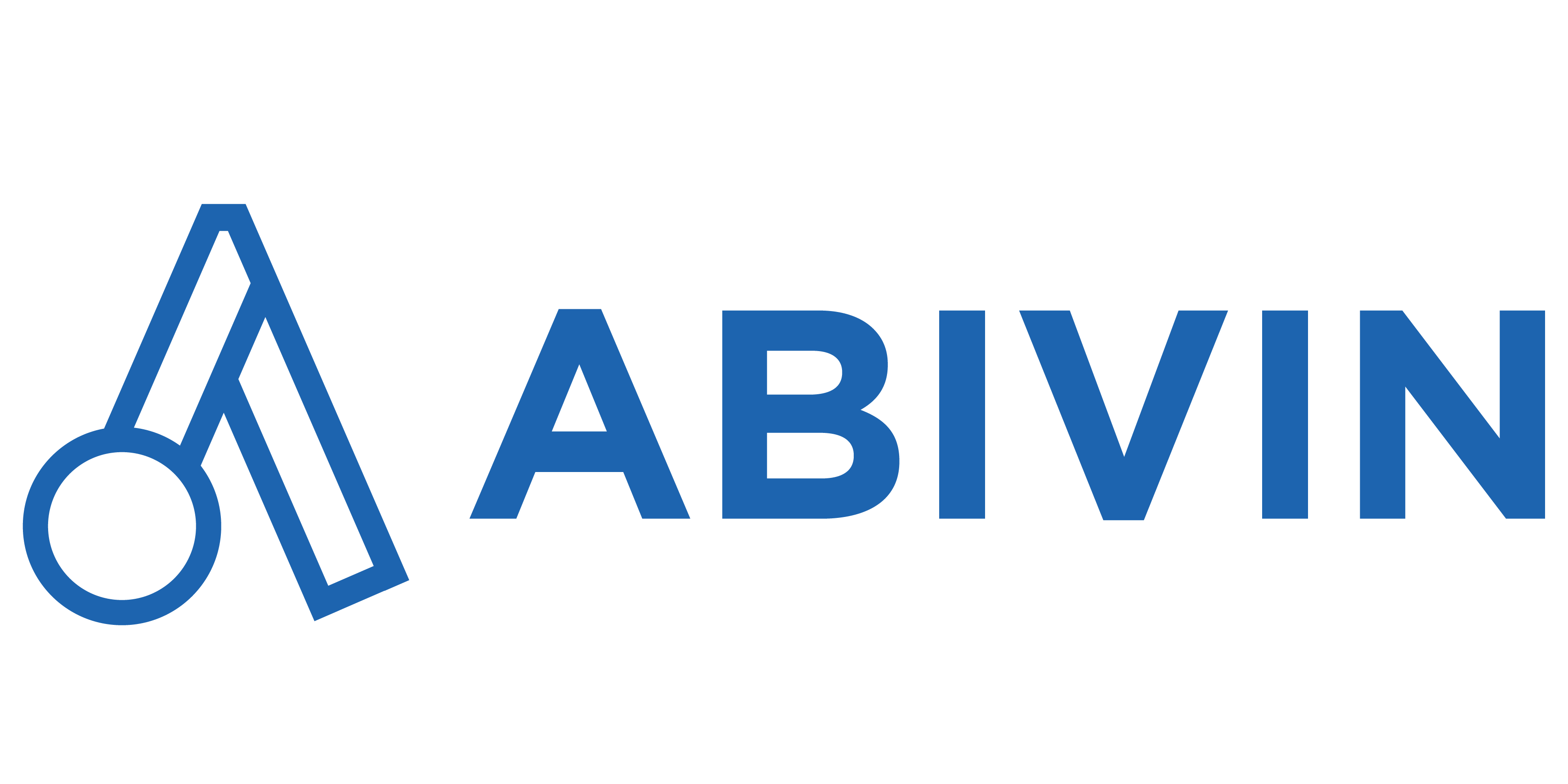
Abivin
Abivin develops Abivin vRoute - an AI-powered Logistics Optimization Platform that makes environmental impacts by enabling efficiency in supply chain management. Their unique component is the proprietary optimization algorithms that can assist companies in making automatic and optimal transportation route plans in terms of revenue, cost, time, and energy.
They are serving enterprise clients across 7 countries in the Asia Pacific region and making a foray into the waste management sector with reverse logistics solutions for global manufacturers.

CBE Eco-Solutions
CBE Eco-Solutions is revolutionizing the oil & gas industry by providing a sustainable solution to recycle oil refinery carbon waste into high-value products. The carbon waste is currently burnt in incineration plants with the ash sent to landfills.
Their green technology can extract vanadium and carbon from the carbon waste and convert them to vanadium pentoxide and activated carbon, respectively. Vanadium pentoxide is commonly used in the manufacturing of alloy and ceramic. Activated carbon could be used in wastewater treatment, air purification and as carbon electrode for energy storage systems.
Commsens
Commsens is a company focusing on sustainability and smart city IoT solutions globally. Their unique value proposition is optimising energy efficiency in buildings, through predictable load distribution” they achieving it by stretching their capabilities from re-engineering low-cost hardware to developing deep learning software, as such they can achieve integrated human comfort, energy efficiency and sustainable solutions at affordable cost.
Their owned designed and developed energy meters provides a plug and play model of digitalising high energy-consuming apparatus into a singular platform where our proprietary AI/ML model can be applied for optimisation and prediction.
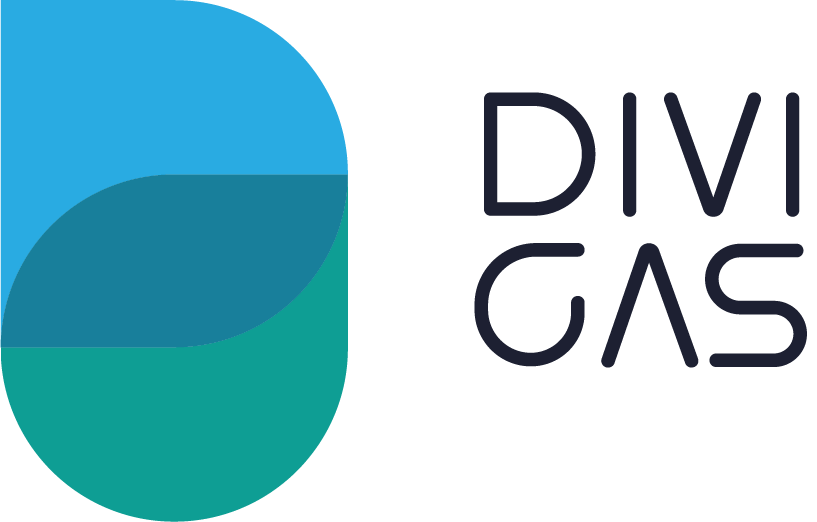
DiviGas
DiviGas has invented proprietary polymers to make a new hydrogen membrane, a nano-molecular filter, that allows for this wasted gas to be reused – saving billions & avoiding millions of tons of CO2 production.
Divi-H can be used in a wide range of application from fuel gas recovery to loop optimization through H2/CO adjustment and carbon capture. This can be operate in refineries, petrochemical plants, Ammonia plants, Methanol production, Metallurgical production, Power-to-Gas systems, Gasifiers and many more.

HRE Pvt Ltd
HRE Pvt Ltd is a boot strapped Start-up that provides an Electric auto with a high torque and a low cost of operation. Due to low cost of operations, it would improve the living standards of over 400,000 families.
With a Patent pending Thermal management Technology, it offers LFP batteries with longer life reducing the levelized cost of battery per cycle, it would act as a catalyst for storage & usage of renewable energy.

Inoviea Ventures
i-panelKlean is a patented technology in waterless solar panels self cleaning system that increases power generation upto 100% and reduces the payback period of entire Solar plant by up to 40%. It is completely automatic, programmable, waterless, brushless and does not have any moving parts on solar panels. They first make the solar panels slippery by special coatings and then blow them clean using compressed air multiple times a day.
The product provides IRR from 28% to 81% over life cycle. Has annual potential impact of 8 Billion USD extra revenue, save 100 billion litres of water, save 60 million tons of carbon emissions and save lives of solar cleaning workers from electrocution or falling while working. It’s combined deep tech, nano-tech, pneumatics, automation and IOT based advance solution. ipaneKlean is a bootstrapped startup.

kraftwek
kraftwerk directly supplies fuel cells/stacks/boxes for the powertrain of a wide range of applications. Their technology can be used in the automotive industry, in aviation or in new fields like unmanned aerial vehicles (UAV) and surveillance or the Internet of Things (IoT).
The advanced solid oxide fuel cells (aSOFCs) are produced in Dresden/Germany and can convert the chemical energy of hydrogen or all common e-fuels directly into electrical energy. The energy generation is not subject to the efficiency limitations of the combustion processes. In comparison to alternatives, an aSOFC starts up quickly, is robust and extremely low cost as it contains no platinum.
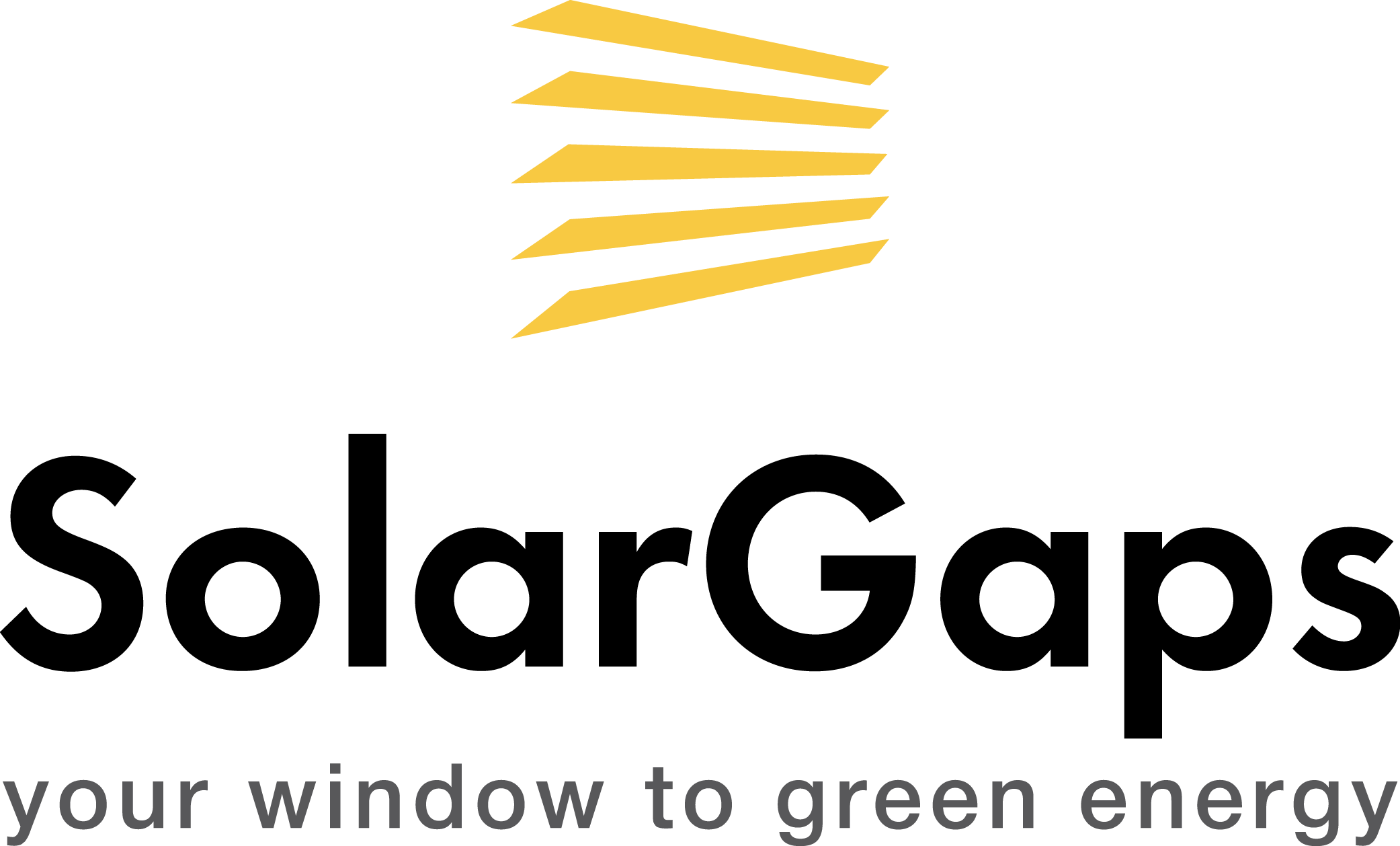
SolarGaps
SolarGaps is the world's first smart solar blinds, which can generate electricity and save on energy bills as well as decrease CO2 emissions. Using abundant vertical space of the building to produce energy. Decreases energy consumption and CO2 emissions, save on the air conditioning. Solar cells with 22,4% KPI, 1Kwh energy per day from a 1,5 sqm window.
![]()
SunEmison Solar Energy
SunEmison aims to provide the much needed energy security to world, ensuring self-sustained buildings, rapid deployment and reducing transmission & distribution losses.
They offer AI enabled architectural glass with embedded photosynthesis / photoactive technology, Glass aim to convert traditional building construction materials into solar energy generators optimizing three different things at the same time, namely electricity production, thermal insulation and intelligent data analytics by UI / UX .
![]()
SunGreenH2
SunGreenH2 is developing novel advanced nanostructured materials for the world’s highest efficiency electrolysers. The company is using low cost earth abundant materials to improve hydrogen production to 2x and lowering energy consumption by 10% leading to halved stack size and materials cost.
SunGreenH2’s proprietary, platform technology is capable of boosting the performance of alkaline, PEM and AEM electrolysers. In particular, for PEM electrolysers, we reduce platinum group metal (PGM) loading by 30x to 0.01-0.2 mg.cm-2 thus removing one of the critical barriers to scaling up in the industry.

WeavAir
WeavAir offers a business intelligence solution for decarbonizing real estate & transportation hubs and systems composed of predictive software and multi-sensor IoT devices that measure 20 different metrics (on air quality, predictive maintenance and people flow) in real-time at 95% accuracy, leading to ROI of less than 2 years.
It helps operators save 30% in operation and maintenance costs, over 20% in energy, and improve air quality, reducing downtime, the transmission of infection like COVID-19 as well as legal and insurance risks.
- Details
- Category: Uncategorised
- Hits: 2497
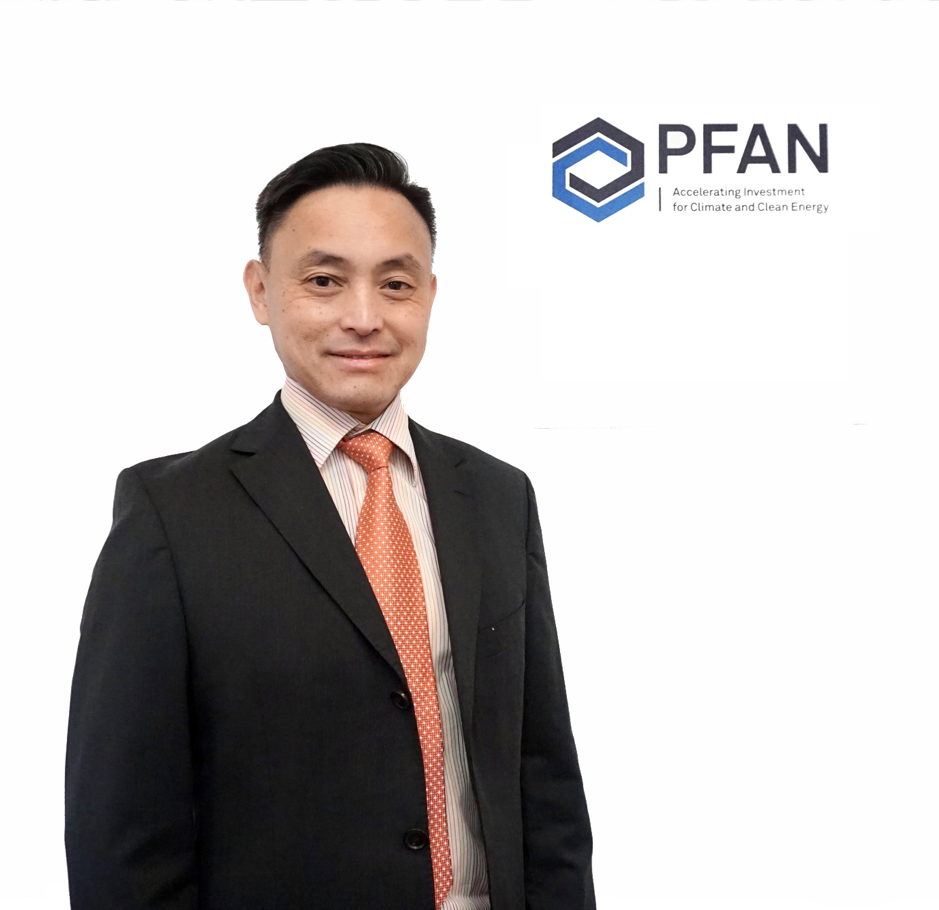
David Yeo
Regional Transaction Manager
PFAN
David Yeo serves as Regional Transaction Manager for PFAN. He supports the PFAN Asia Regional Coordinator and also helps to build and maintain the investor network for PFAN. He is both a coach and has mentored several PFAN and PowerACE projects to date.
David is an advocate of sustainable practices, in both business and environmental sustainability. He consults and advises local SMEs to path their journeys of growth and expansion, together with his team of industry veterans.
He has been involved in the various downstream aspects of the renewable energy industry since 2012, focusing on Solar PV and Biomass projects. David was previously from the Electronics Manufacturing and Services Industry and a foremost expert in reverse logistics in the Asia Pacific.
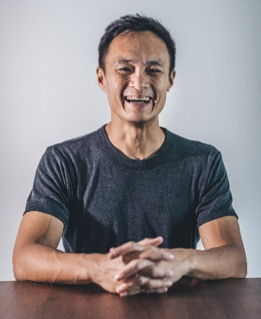
Eddy Lee
VP Ventures
Engie Factory Asia Pacific
Eddy is the VP Ventures at Engie Factory, which is the Asia Pacific innovation arm of Engie, a global leader in the energy transition. At Engie Factory, he selects startups in future cities and sustainability for investment by Engie's corporate venture capital fund, and also venture builds startups with external founders.
Eddy has invested in more than 50 US and Asia technological startups. He relocated from Silicon Valley to Asia to support the region's growing startup ecosystem. Concurrently, he coaches at the National University of Singapore, INSEAD, and StartX accelerator among other institutions.
He was formerly a Stanford University consulting professor, a medical imaging scientist, and a circuit design engineer.
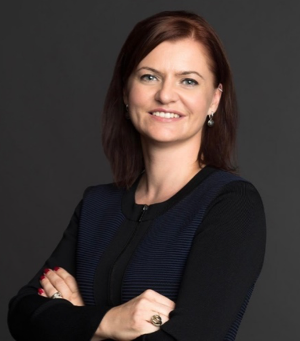
Katarina Uherova Hasbani
Founder
Enrupt
Katarina works on transformations shaping the energy systems of tomorrow. The future of energy will be closer to the customer, using cleaner, renewable sources and leveraging digital technologies. Katarina is supporting this transformation by building partnerships between young, innovative startups and corporations. She brings insights from several energy sectors and regions to create programs and activities where new ideas thrive and deals get executed.
She has over 17 years of professional experience in energy from government & consulting in Europe, Middle East & South-East Asia. Her past roles include Board Member and Vice President of the Alliance for Rural Electrification (Industry association, HQ in Belgium), Female Founders (Non-profit, HQ in Singapore), and Global Committee of INSEAD Women in Business.
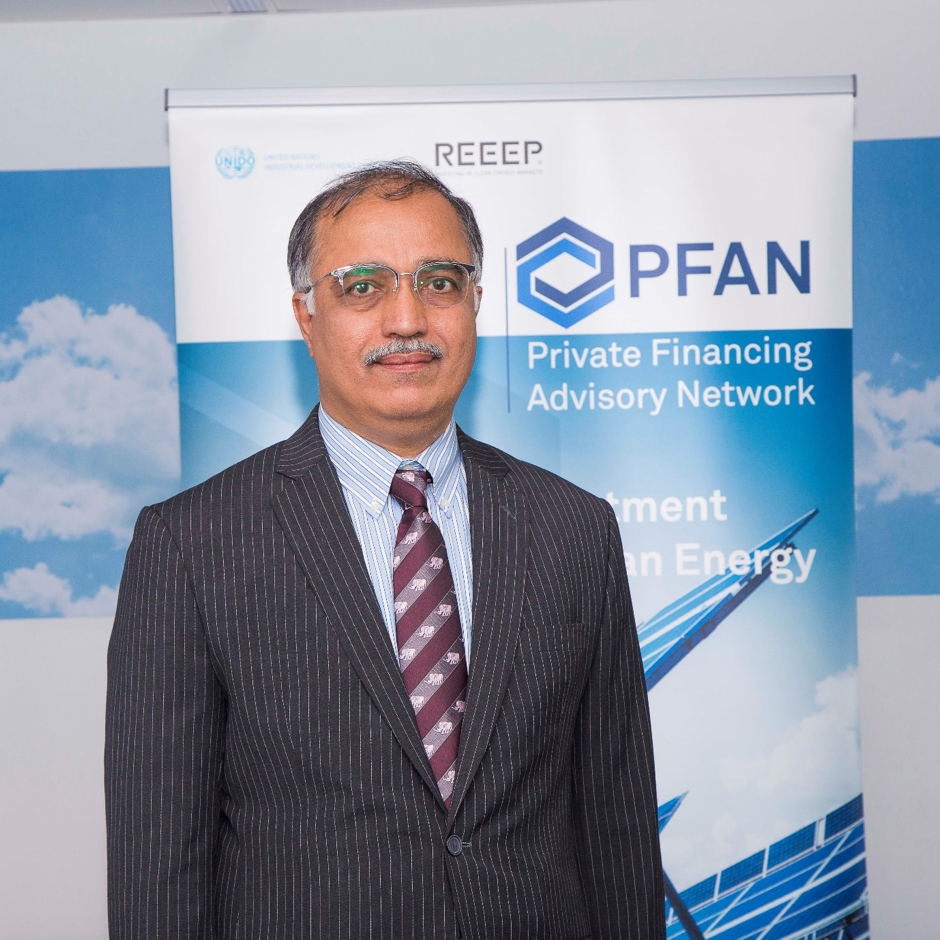
Nagaraja Rao
Head of Investment Facilitation
PFAN
Nagaraja Rao has been with PFAN since 2008. As Head of Investment Facilitation, he provides focused support and assistance to projects as well as to PFAN network members in transaction structuring, financial modeling, project risk identification, risk mitigation, and support investment negotiations outreach.
He supports clean energy projects and simultaneously seeks out investors and institutions to fund them. He also provides strategic support in PFAN scale-up, market penetration, and investors outreach activities.
Nagaraja has mentored much renewable energy and energy efficiency projects in Asia, Africa, Central Asia, and Central Europe, several of which have reached financial closure, and many have won business plan competition awards.

Paul Singh Gill
Managing Partner - Asia
IOTA Omega Ventures
Paul is a seasoned corporate executive turned entrepreneur; and more recently, mentor. His professional career over the last 25 years has been in leading corporate transformation initiatives in fields as diverse as gold & copper mining, banking & financial services to web search platforms.
In the last 10 of those years, Paul has been an entrepreneur and manages the Asian office of Iota Omega Ventures, an operational due diligence advisory firm with offices in Singapore and Oxford, United Kingdom. He has also been active in starting and growing companies, with six companies started to date and four successful exits.
Paul is an investor in early-stage/cleantech companies and often takes an active position in steering his investments. Since 2015, he has been a mentor - advising startup teams at the National University of Singapore, Republic Polytechnic, and Singapore University of Technology & Design.
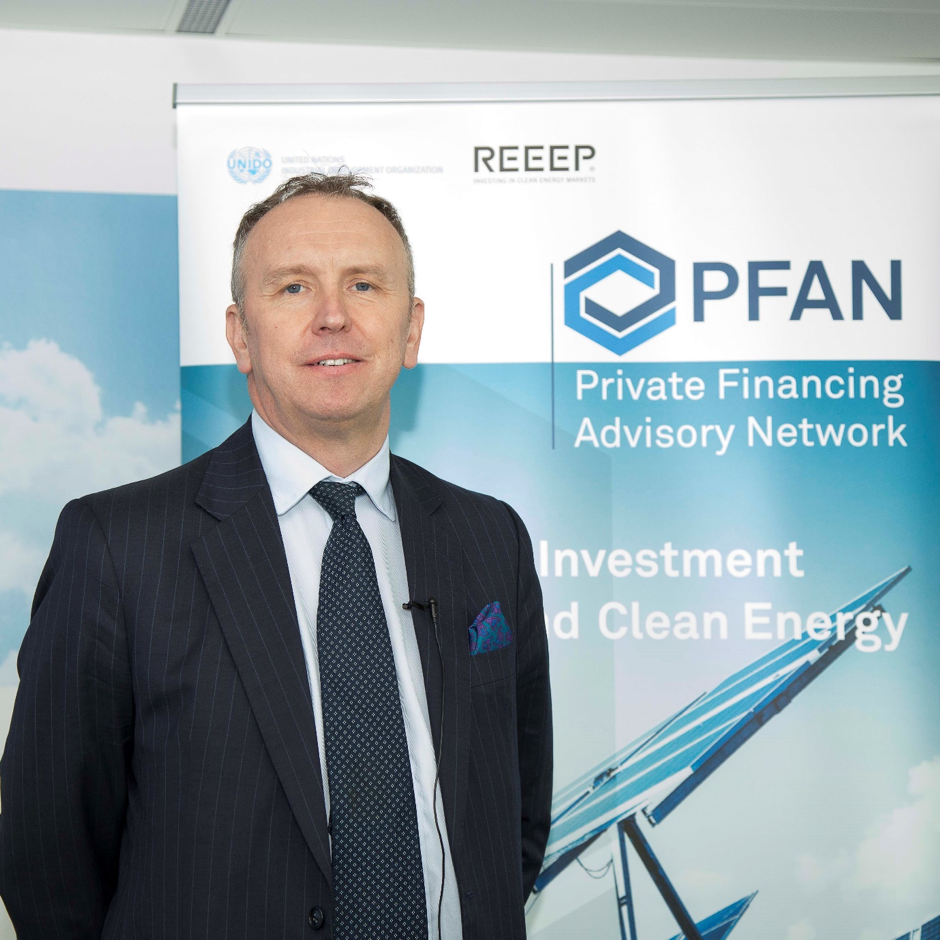
Peter Storey
Global Coordinator
PFAN
Peter Storey is a financing professional, specializing in developed countries and transition economies with significant expertise in renewable energy as well as other infrastructure sectors. He has held senior positions with major European banks and project developers and has over 20 years of experience in working on multi-disciplinary advisory and financing mandates, and of structuring and developing projects.
Peter is the Global Coordinator and also one of the founding members of the Private Financing Advisory Network (PFAN). In spite of his soft-spoken demure, he bears the weight of PFAN providing both leadership and direction. He has an in-depth understanding of investors' mentality and has guided many projects to successful financial closures.

Stanley Ng
Program Director - Southeast Asia
New Energy Nexus Asia
Stanley is the Program Director for New Energy Nexus in Southeast Asia and is currently working on building the energy startup ecosystems in the region. He works with universities, companies, and the civil society to support budding entrepreneurs in enabling the transition to a clean energy economy.
Armed with digital technology and energy innovation background, he has experience in renewables, cleantech startups, digital media, and IT advisory. He is also an advocate of innovation the role of entrepreneurship in the energy transition.
Stanley is a native of New York City and has spent the last 12 years working in energy startups and digital technology companies both in the United States and the Asia Pacific region.
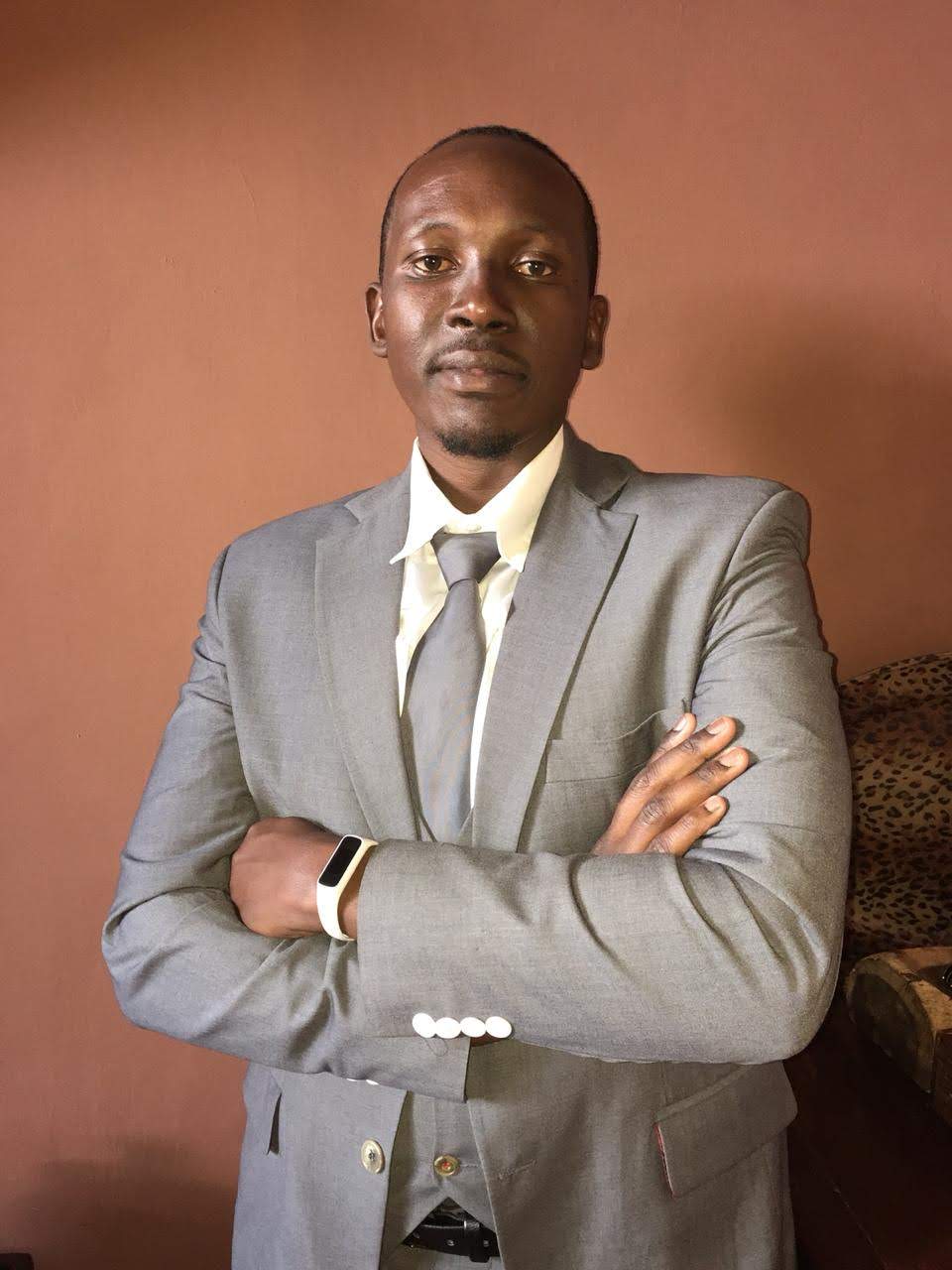
Wilfred Mworia
Regional Coordinator
PFAN
Wilfred started his career in enterprise software, working for several local and international software houses. With a keen interest in the transformative potential of entrepreneurship, he ventured out into tech enterprise for a number of years, after which he found he could have a greater impact by enabling other entrepreneurs to thrive. He has since worked in various capacities, providing business started and investment support to entrepreneurs.
Wilfred currently serves as the Regional Coordinator for Eastern Africa at the Private Financing Advisory Network (PFAN), where he works to grow investment towards clean energy ventures. He supervises a team of coaches in the region and also acts as a mentor himself in projects where he can contribute his experience and expertise.

 To connect with IFS2, join the IFS2
To connect with IFS2, join the IFS2 
